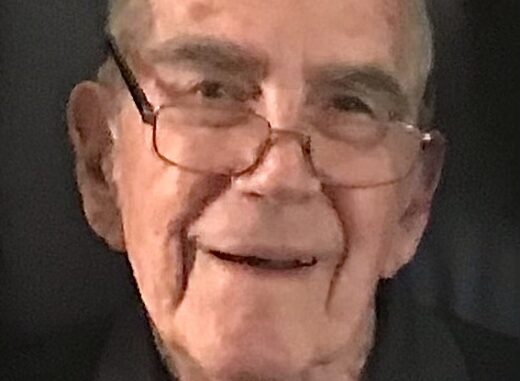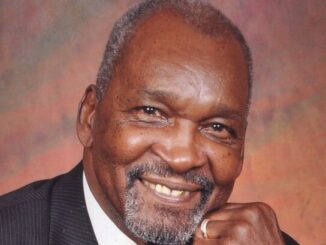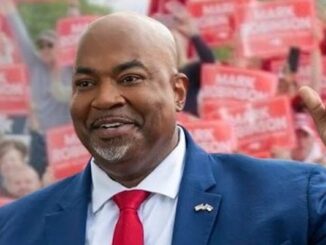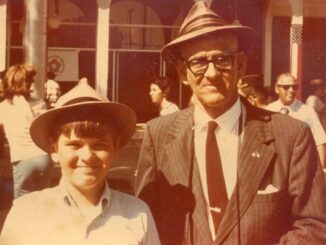
Lester R. Craft, a small-college Kentucky football coach who later became a nationally prominent civic leader and advocate for youth causes, died on Sept. 23 in Glenwood Springs, Co., at age 91. Notably, Craft led groundbreaking diversity and inclusion advances in both of those fields.
Craft’s greatest success as a football coach came when he led a team drawn largely from the coal fields of eastern Kentucky and other small towns to an undefeated (9-0) season at Georgetown College in 1965. Craft, the first football coach at Georgetown to put players of color on the field as members of the team, continued coaching there until the early 1970s, when the college temporarily dropped football amidst the anti-sports, anti- establishment sentiments that held sway on many campuses during that era. Craft later rose to prominence as president of the Optimist International civic organization, where he oversaw admission of women as members for the first time.
Craft was born on Dec. 19, 1930 in Letcher County, Ky., the second son of William Nathaniel Craft, a restaurateur, coal miner, and small-scale mine operator, and Velma Adams Craft, who was active in running the family’s restaurants.
Craft grew up in the then-bustling coal-mining community of Neon in southeastern Kentucky, and played center on the football team at Fleming High School. Craft made up for his small size with a fierce playing style that landed him a place on the collegiate team at Georgetown, though the achievement was something of a fluke. Convinced that he was too small for college ball, he had resisted trying out before finally relenting after continued prodding by an uncle, Robert Adams, with the qualifier that he was only doing so to prove Adams wrong. Instead, Craft proved himself wrong by making the team.
Craft still had to pay for much of his education, working summers delivering coal locally, and as a steelworker in Canton, Ohio. Later, when Craft became head coach at Georgetown, Adams scouted for him, recommending promising eastern Kentucky high schoolers, several of which Craft recruited to the team.
Craft’s formative years in what is now known as Fleming-Neon left an indelible stamp. He reminisced about that time for the rest of his life, relating colorful anecdotes about Neon’s Wild West atmosphere, which resulted from its status as an incorporated town located amidst communities owned by coal companies that, unlike Neon, prohibited the sale of alcohol. In one telling story, a local lawman, annoyed by the sluggish dancing in a Neon saloon, drew his gun and discharged several rounds into the floor, which produced the desired effect as the couples promptly picked up their pace. Shootings with less benign outcomes, which based on archival newspaper accounts occurred with shocking frequency, were the subject of other stories.
Craft often proudly cited Neon’s diversity, ticking off last names of friends and families that denoted heritage from Eastern Europe, the Middle East and elsewhere, all drawn to the booming economic opportunities fostered by the expansion of Appalachian coal mining at the time.
Prior to graduating from Georgetown in 1953, Craft enlisted in the U.S. Marine Corps and completed the undergraduate Platoon Leaders Course at Parris Island, S.C., which put him on a track to become an officer. Instead of continuing with the Marines, Craft transferred to the Navy, where he trained as a scuba diver, or “frogman,” and specialized in underwater explosive ordinance disposal. Craft later related that while his wife, Jean, had suggested he seek Navy duties that would provide more income for the young family, she was none too pleased when she learned, after some delay, precisely what that entailed.
During his four years in the military, Craft served as a Navy Ensign before being promoted to Lieutenant (junior grade). As a shipboard officer in the Pacific, he participated in operations that evacuated Nationalist Chinese fighters and civilians from the Tachen Islands off the coast of mainland China, prior to their takeover by Mao’s Communist forces.
After his Navy service, Craft returned to Georgetown as an assistant to the renowned, late basketball coach Dr. Bob Davis, who was doing double duty as both football and basketball coach. Davis soon suggested turning football over to Craft, which, whether intended or not, served to return a favor. Craft and Davis had met previously when both had attended Georgetown: Davis, learning that Craft had studied Latin in high school, recruited Craft to be his roommate and provide some tutoring, while also conferring Craft with the temporary nickname “Lesterus.” Upon dividing up basketball and football duties, the two embarked on long and successful coaching careers at Georgetown, as well as a life-long friendship.
Recruiting high schoolers overlooked by the football powerhouses of Ohio and the Southeastern Conference, Craft built a series of winning teams, culminating in the undefeated run of 1965. Although that level of success was not repeated in ensuing years, among Craft’s personal effects was a clue that by all rights, it should have been. Tucked away in his files was the printout of an email he received a few years ago from a player on one of his subsequent teams, stating: “It was NOT your fault that we lost the homecoming game or the two following games. We were scuttled from within our ranks by someone who thought he needed money rather than wins.” Had it not been for those three losses, that year’s team arguably would also have been undefeated. Craft never spoke publicly, or perhaps even in private, about that revelation.
Perhaps Craft’s most significant accomplishment at Georgetown, rather than being measured in wins and losses, was integrating the football team. He later related that use of the playing field granted earlier in the last century had been accompanied by a vow never to let anyone of color play on it. Perhaps benefitting from the diversity of Neon in his youth, Craft harbored no second thoughts about ensuring that the promise, despite decades of precedence, was broken.
After the future of football at Georgetown became uncertain in the early ‘70s, Craft was offered the job of Executive Director at Boys Homes of North Carolina. During his 16 years there, he led an expansion to serve girls as well, along with a name change to Boys and Girls Homes of North Carolina, which served some 150 children with campuses at Lake Waccamaw and Huntersville. The position built upon a longstanding voluntary calling for Craft, who for years had been active in Optimist International, a service organization with “Friend of Youth” as a long-time slogan.
In 1986, Craft was elected president of Optimist International, which in its heyday served millions of young people each year through both national and local programs carried out by thousands of clubs in the United States, Canada and Jamaica. During his tenure in the volunteer role, Craft oversaw the service organization’s decision to admit women for the first time. Craft advocated opening Optimist to women, though he acknowledged in announcing it that the change was made inevitable by a Supreme Court ruling a few weeks earlier that ended Rotary International’s exclusion of women.
Craft retired from Boys and Girls Homes in 1989. He continued his affiliation with Optimist International, spending two years at its headquarters in St. Louis putting his endowment and fundraising experience to work in helping further develop the organization’s financial foundations. Returning to North Carolina afterward, he relocated from Lake Waccamaw to Shallotte, where he remained active in Optimist and church, and continued to support his alma mater, which honored him in 1999 with induction into its Athletics Hall of Fame.
Among the highlights of Craft’s retirement years was an annual gathering for golf and fellowship of many of his life-long Georgetown friends, including Davis and his wife Joyce, Bobby and Joy Barlow, Albert “Sandy” and Myra Suffoletta, and Billy and Carol Brannock.
Craft was devoted to his first wife, Etta Jean Darter, a school teacher he met when both attended Georgetown and who passed away in 1985. His second wife, Carolyn (Bullard), to whom he was also devoted, died in 2021.
Craft was preceded in death as well by his parents, and by his older brother, William N. “Bill” Craft II, and step-son Jerry Bullard.
Survivors include his younger brother, James Edward Craft (Susan), of Durham, as well as sons Lester R. Craft, Jr. (Stacey) of Basalt, Colo., Michael Gene Craft (Kimberly), of Nashville, grandsons Michael Craft and Miles Craft, granddaughter Adele Craft, step-grandchildren Rebekah Furr and Eden Bullard, step-great-grandchildren Ryder Bullard, Bryce Furr and Cooper Furr, and seven nieces and nephews.
Memorials may be directed to the Georgetown College (Ky.) scholarship fund in honor of Lester R. Craft at 400 E. College St., Georgetown KY 40321.
















